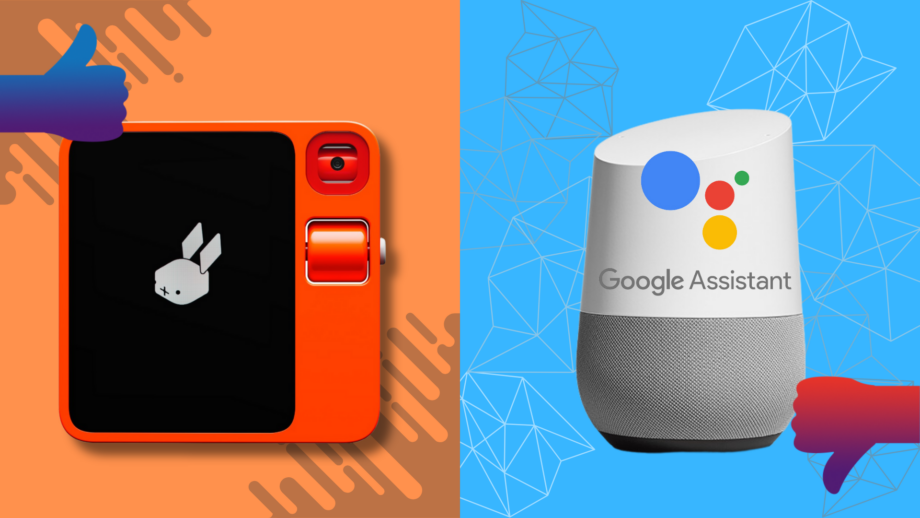Winners and Losers: Rabbit R1 stands out at CES as Google Assistant loses 17 features

OPINION: January is always a big month in tech thanks to CES, so you won’t be surprised to hear that our winner is a company that made a major announcement at the Las Vegas conference this week.
Keep reading to learn more about our winner and loser from the second week of 2024.

Winner: Rabbit R1
Despite all of the well-known names that attended CES this year, our winner is a relatively new startup known as Rabbit, but that didn’t stop it from garnering a massive amount of attention at the Las Vegas showcase.
Rabbit launched its first product, the Rabbit R1, at CES 2024 and, if you’re wondering how popular it could be, the company has already sold out of its second batch with 10,000 units gone on day one alone.
The Rabbit R1 is a handheld device powered by AI that is designed to learn from your actions, carry out tasks and ultimately eliminate the need for users to download a surplus of apps.
The device operates on its own system called Rabbit OS, and credits its intelligence to a Large Action Model (LAM). However, unlike ChatGPT and Google Bard, Rabbit’s AI model learns from your habits and the way in which you interact with apps to then replicate that behaviour without the need for additional inputs. This means it can handle more extensive tasks such as researching and booking travel or filling your shopping cart and completing the checkout process on your behalf.
“Rabbit is now building towards an intuitive app-free experience with the power of AI”, said founder and CEO Jesse Lyu in Rabbit’s press release. “Large Language Models, like ChatGPT, showed the possibility of understanding natural language with AI; our Large Action Model takes it one step further: it doesn’t just generate text in response to human input – it generates actions on behalf of users to help us get things done”.
The R1 is designed to give a retro, pocket-sized feel and consists of a small 2.28-inch touchscreen, a scroll wheel, a press-to-talk button for voice commands and a tiny rotating camera, or “rabbit eye”. Inside the device, you’ll find a MediaTek Helio P35 processor with 4GB of RAM and 128GB of storage, as well as a SIM slot for cellular capabilities and an all-day battery life. It’s also relatively affordable at just $199.
We could be seeing a glimpse at the next stage of smart devices with the Rabbit R1, and we’re excited to see what the reception will be like once customers get their hands on the innovative handheld technology.

Loser: Google
Our loser this week is Google after the company announced that it would be getting rid of 17 Google Assistant features.
While all of the features being removed are ones Google claims are underutilised, that doesn’t mean one or two aren’t features you’ve become accustomed to using in day-to-day life.
Google claims it’s doing this to prioritise the Google Assistant features that are more popular with users, but the company also reportedly laid off around 1000 workers this week including a few hundred from its Google Assistant division, which we can’t imagine has helped (via The Verge).
The following features are set to lose support from January 26:
- Playing and controlling audiobooks on Google Play Books with your voice
- Setting or using media alarms, music alarms or radio alarms
- Accessing and managing your cookbook
- Managing a stopwatch on smart displays and speakers
- Using your voice to call a device or broadcast a message to your Google Family Group
- Using your voice to send an email, video or audio message
- Rescheduling an event in Google Calendar with your voice
- Using App Launcher in Google Assistant driving mode on Google Maps
- Asking to schedule or hear previously scheduled Family Bell announcements
- Asking to meditate with Calm
- Voice control for activities will no longer be available on Fitbit Sense and Versa 3 devices
- Viewing your sleep summaries will only be available on Google Smart Displays
- Calls made from speakers and smart displays will not show up with a caller ID unless you’re using Duo
- Viewing the ambient “Commute to Work” time estimates on smart displays
- Checking personal travel itineraries by voice
- Asking for information about your contacts
- Asking to take certain actions by voice, such as send a payment, make a reservation, or post to social media
Some of the above do have alternatives you can use, while others do not. You can find the full list with alternative features on Google’s Help page.








